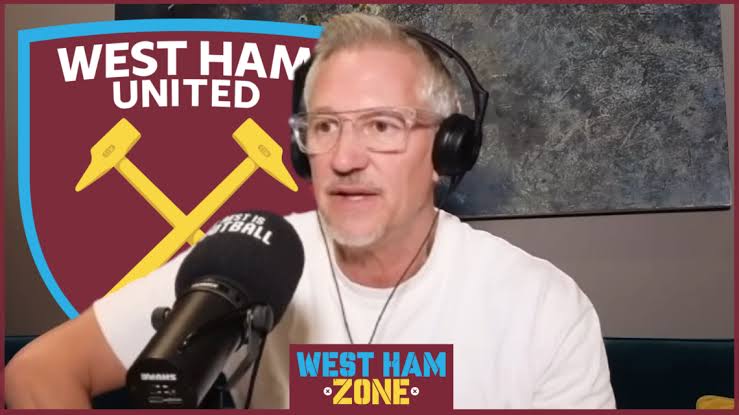Gary Lineker reacts to West Ham controversy v Chelsea as MOTD show footage
Gary Lineker has expressed his thoughts on the controversial incident during West Ham United’s 3-0 defeat to Chelsea, where the Hammers were denied a penalty. The incident occurred in the 28th minute when Crysencio Summerville, who was handed a starting role by Julen Lopetegui, appeared to be pulled down inside Chelsea’s penalty area by Wesley Fofana. However, referee Samuel Barrott dismissed the appeals, and the game continued without the penalty, leaving West Ham frustrated.
This was a significant moment for Lopetegui’s side, as they were already trailing by two goals scored by Nicolas Jackson. A successful penalty could have changed the momentum, reducing the score to 2-1 and giving the Hammers a lifeline in the game. Instead, Chelsea cruised to victory, leaving West Ham to reflect on what could have been.
Gary Lineker, discussing the incident on *BBC’s Match of the Day* [21 September, 23:31], highlighted a broader issue with refereeing decisions and the use of VAR. “I think there’s a tendency with the referees’ call thing where there’s a very high bar,” Lineker commented. He further explained that there’s a risk that if people complain too much about such incidents, the standards for what constitutes a penalty will lower, creating inconsistency in decision-making. Lineker argued that the current system is flawed and suggested that until there’s an appeal process with VAR, the issue will persist.
The debate surrounding refereeing decisions has been a hot topic in recent seasons, particularly with the introduction of VAR. Lineker’s point about the “high bar” for penalty decisions reflects the frustration many fans and pundits feel. Replays clearly showed that Summerville was held by Fofana for at least two seconds, with the defender grabbing his wrist. In most situations, such contact would likely be called as a foul elsewhere on the pitch, particularly in a defensive play. However, Barrott’s decision not to award the penalty may have been influenced by how Summerville went down, raising questions about consistency in officiating.
This moment proved pivotal in the match. Had West Ham been awarded the penalty and converted it, they could have halved Chelsea’s lead and potentially shifted the dynamic of the game. Instead, Chelsea maintained control, securing a comfortable 3-0 win, while Lopetegui continued to experiment with his side in search of form. The loss means that Lopetegui’s West Ham have only won one of their opening five Premier League matches, adding further pressure on the Spanish manager.
The incident is just one of many recent penalty decisions that have sparked debate, as more controversial moments seem to be “swept under the carpet,” as some would say. While VAR was introduced to help eliminate these errors, the system itself has come under scrutiny for its inconsistencies. Lineker’s suggestion for an appeal system within VAR could be a solution, offering referees the additional support they need to make the right calls. Without such a mechanism, these types of incidents are likely to remain a source of frustration for teams, fans, and managers alike.
Ultimately, West Ham’s defeat to Chelsea will be remembered not only for the scoreline but for the missed opportunity that might have shifted the game in their favor. The absence of a penalty for Summerville underscores a wider problem in modern football – the challenge of balancing technology and human judgment to ensure fairness on the pitch.
